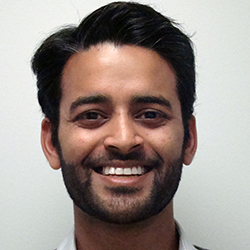Northwestern Hosts Quantitative Biologists
The meeting took place Saturday, May 9
Quantitative biology exists at the intersection of the life sciences, mathematics, physics, engineering, and information sciences. The growing field, therefore, benefits from the interactions among scientists with varied perspectives and common interests. To facilitate those crucial interactions, Northwestern University hosted its first-ever quantitative biology meeting.
 Sponsored by the Northwestern Institute on Complex Systems, McCormick School of Engineering, and Kellogg School of Management, “Building a Network of Quantitative Biologists” took place Saturday, May 9 on the Evanston campus.
Sponsored by the Northwestern Institute on Complex Systems, McCormick School of Engineering, and Kellogg School of Management, “Building a Network of Quantitative Biologists” took place Saturday, May 9 on the Evanston campus.
The meeting brought together experimentalists and theorists — both faculty and students — from around the greater Chicago area to discuss each other’s work in an informal setting.
“The goal of quantitative biology is to make biology more than a descriptive science, where underlying principles are pursued through a combination of quantitative measurements and mathematical models,” said Madhav Mani, assistant professor of engineering sciences and applied mathematics at McCormick. “Our aim is to build a community who’s whole is greater than the sum of its parts.”
Mani co-organized the meeting with David Schwab, assistant professor of physics and astronomy in the Weinberg College of Arts and Sciences.
Presenters included Margaret Gardel, assistant professor of physics at the University of Chicago; Stephanie Palmer, assistant professor of organismal biology and anatomy at the University of Chicago; John Marko, professor of physics and astronomy in the Weinberg College of Arts and Sciences; and Greg Schwartz, assistant professor of ophthalmology at the Feinberg School of Medicine. Phillip Nelson from the University of Pennsylvania delivered a guest talk.